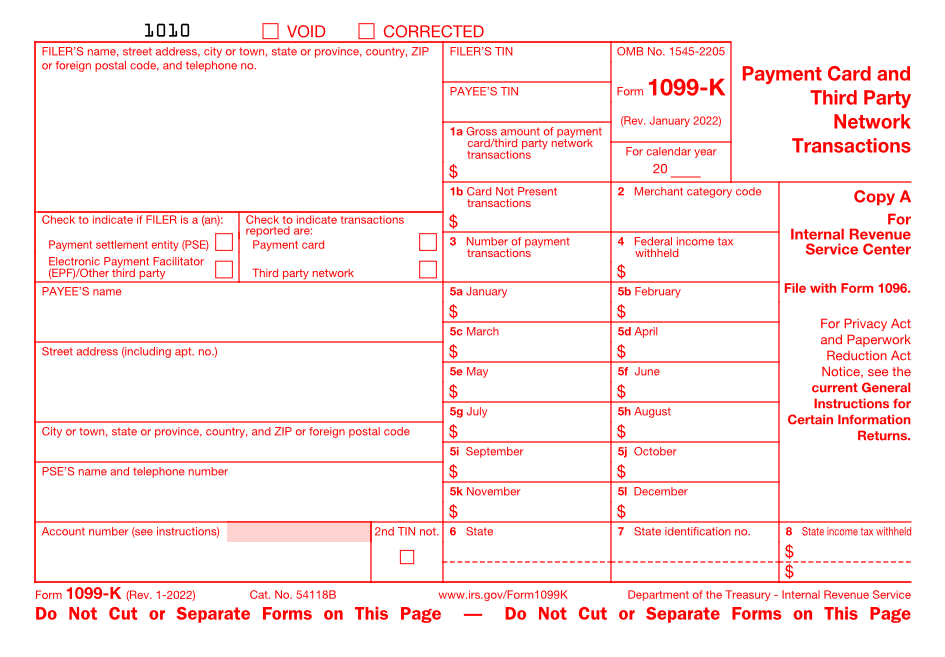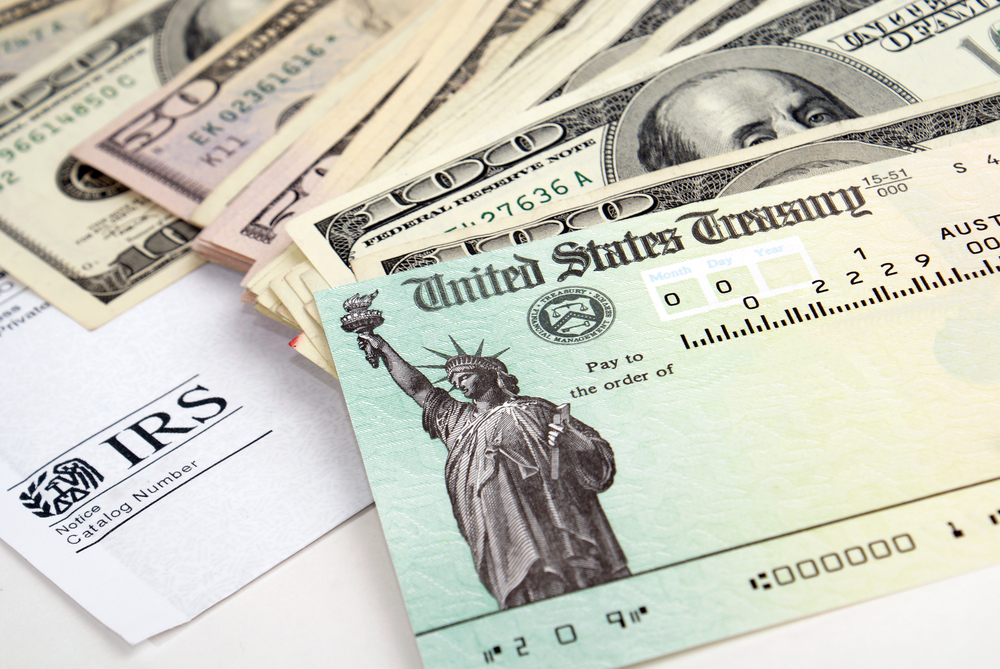By Dawn Moser
Tax forms are notoriously confusing, and with such high stakes, important to get right. We all know the IRS is keen on collecting the right amount of income tax, but determining that amount can get tricky. Especially when one considers everything that counts as income.
In addition to wages earned from a job or business, income can be obtained from side hustle sales, the selling of assets, resale of goods, investments, and more.
The good news: The IRS has 1099 forms for all manner of income types.
The bad news: It’s not always obvious which forms you need and what you owe.
With that in mind, we’ll answer three of the most common questions we get about 1099s:
What is a 1099 form?
Rather than a single form, the Form 1099 refers to a group of IRS forms issued for income.
Most people are familiar with a W-2 — the form full- or part-time employees receive in triplicate in January or February, detailing the income they’ve received from an employer.
A 1099 is similar, but issued by a company, organization, or individual that does not employ the payee. Think contractors, consultants, freelancers, and self-employed folks as typical recipients of these forms. There are also forms for income not related to work for pay.
Different kinds of income require different forms. Some forms are more straightforward than others, and it’s possible to receive multiple types of forms in a single year.
What are the different types of 1099 forms?
The IRS lists 21 different 1099 forms. Here is an overview of each form, as of March 2023, and why you could receive one:
| Form 1099-A | Acquisition or Abandonment of Secured Property If you acquire property or an interest in property in lieu of an unpaid debt. |
| Form 1099-B | Proceeds from Broker and Barter Exchange Transactions If you sell, receive, or exchange qualified investments or services such as stocks or commodities through brokers or barter exchanges. |
| Form 1099-C | Cancellation of Debt If you have debt cancellation of $600 or more. |
| Form 1099-CAP | Changes in Corporate Control and Capital Structure If you’re a shareholder of a company that underwent a change in control or capital structure. |
| Form 1099-DIV | Dividends and Distributions If you had dividends or other investment distributions. |
| Form 1099-G | Certain Government Payments If you received federal, state, and local government payments, including: Unemployment insurance Certain tax refunds, credits, or offsets Reemployment trade adjustment assistance (RTAA) Taxable grants Agricultural subsidies Or, if you made payments on a Commodity Credit Corporation (CCC) loan. |
| Form 1099-H | Health Coverage Tax Credit (HCTC) Advance Payments If you received advances on qualified health insurance payments from eligible trade adjustment assistance (TAA), Reemployment TAA, or Pension Benefit Guaranty Corporation (PBGC) benefits. |
| Form 1099-INT | Interest Income If you received more than $10 in interest from a bank or other financial institution. Or if a bank of financial institution: Withheld and paid any foreign tax on interest on your behalf. Withheld (and did not refund) any federal income tax under the backup withholding rules. |
| Form 1099-K | Payment Card and Third-Party Network Transactions If you received $20,000 or more from payment settlement entities (PSEs) like PayPal, Apple Pay, Venmo, or Zelle. Legislation has been approved to reduce the minimum amount to $600; however, that adjustment is currently on hold |
| Form 1099-LS | Reportable Life Insurance Sale If you acquired a life insurance policy in a reportable policy sale. See the Instructions for Form 1099-LS for complete filing requirements. |
| Form 1099-LTC | Long-Term Care and Accelerated Death Benefits If you received long-term care or accelerated death benefits. |
| Form 1099-MISC | Miscellaneous Income Form 1099-MISC applies to payments not covered by other 1099 forms. You may receive a 1099-MISC if you made at least $10 in royalties or broker payments instead of dividends or tax-exempt interest, or if you made $5,000 in direct sales of goods to be resold anywhere besides a permanent retail establishment. You may also receive one if you got at least $600 in rent, prizes and awards, or from any of the following sources: Medical and health care payments Crop insurance proceeds Cash payments for aquatic life Notional principal contract payments to an individual, partnership, or estate Attorney payments Fishing boat proceeds |
| Form 1099-NEC | Nonemployee Compensation If you received wages as a contractor, freelancer, or consultant. |
| Form 1099-OID | Original Issue Discount If you received discount debts and bonds, for which: The original issue discount (OID) is at least $10. You withheld and paid any foreign tax on OID. You withheld (and did not refund) any amount of federal income tax under the backup withholding rules. |
| Form 1099-PATR | Taxable Distributions Received from Cooperatives If you received at least $10 in patronage dividends or other income outlined by the tax code from a cooperative. You can also receive a 1099-PATR if the cooperative withheld any amount of federal income tax. |
| Form 1099-Q | Payments from Qualified Education Programs (Under Sections 529 and 530) If you withdrew money from a qualified education savings account. This includes a 529 plan and Coverdell education savings account (ESA). |
| Form 1099-QA | Distributions from ABLE Accounts If you received money from an ABLE account (a savings program to benefit eligible people with disabilities). |
| Form 1099-R | Distributions from Pensions, Annuities, Retirement or Profit-Sharing Plans, IRAs, Insurance Contracts, etc. If you received $10 or more from profit-sharing or retirement plans, individual retirement arrangements (IRAs), annuities, pensions, insurance contracts, survivor income benefit plans, qualified disability payments, charitable gift annuities, etc. |
| Form 1099-S | Proceeds from Real Estate Transactions If you reported the sale or exchange of real estate. |
| Form 1099-SA | Distributions from an HSA, Archer MSA, or Medicare Advantage MSA If you received funds from a health savings account (HSA), Archer Medical Savings Account (Archer MSA), or Medicare Advantage Medical Savings Account (MA MSA). |
| Form 1099-SB | Seller’s Investment in Life Insurance Contract If you sold a life insurance policy or transferred a policy to a non-U.S. citizen. See the Instructions for Form 1009-SB for complete filing requirements. |
Do I need to file a 1099 form?
Possibly. Based on the broad range of situations requiring forms, it’s likely most people will need to receive or issue a 1099 at some point in their lives.
Businesses, contractors, freelancers, and self-employed workers are more likely to have annual 1099 filing obligations. Which form you file depends on which side of the transaction you’re on: issuing or receiving payment.
Regardless, the 1099 form is an IRS document, and can be obtained and filed through the agency. The form links above contain instructions for how to file.
This isn’t sales tax. Can Avalara still help me with 1099 forms?
Tracking, managing, and filing 1099s can be confusing. If you’re overwhelmed with IRS compliance or want to offload form management so you can focus on business growth objectives, it may be time to consider automating some of the process.
Avalara 1099 (powered by Track1099) can help you with tasks associated with IRS forms 1099, W-2, W-4, W-8, W-9, 1095, 1042-S, T4A, and 94x.
Enter information manually, upload CSV files, or pull information directly from connected business systems. It’s a secure, efficient, and more accurate way to manage obtaining, issuing, and filing IRS forms.
====
Dawn Moser is a writer at Avalara. She loves learning random facts about history, society, science, and art and secretly finds taxes fascinating.
Thanks for reading CPA Practice Advisor!
Subscribe Already registered? Log In
Need more information? Read the FAQs
Tags: Benefits, Income Taxes, IRS, Taxes




